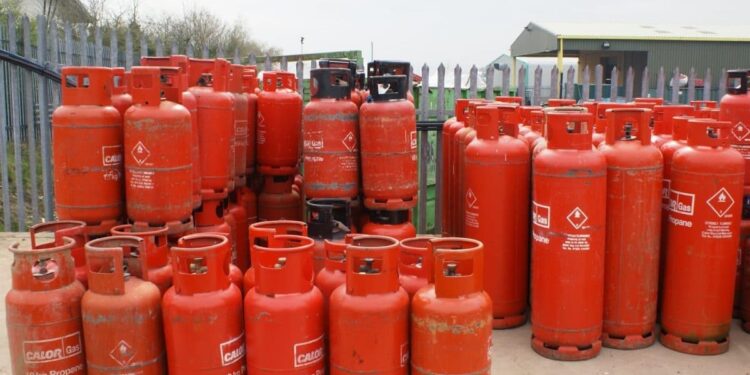The cost of cooking gas in Nigeria has surged to record highs, tightening pressure on households already grappling with a relentless cost-of-living crisis. By late October 2025, the price of a standard 12.5kg cylinder had soared to between ₦15,000 and ₦16,500 — a staggering jump from ₦9,000–₦10,000 just a month earlier.
In Lagos, Nigeria’s commercial capital, retail surveys revealed that gas was selling between ₦2,500 and ₦3,000 per kilogram, more than double its September rate of ₦1,200–₦1,400. For many families and food vendors, the sudden escalation has turned an essential household item into a luxury.
A Crisis at the Crossroads of Policy and Reality
The price surge comes at a time when the federal government has doubled down on its Clean Cooking Initiative, launched in 2024 with the goal of providing 30 million households with clean energy solutions by 2030. The programme was meant to reduce Nigeria’s reliance on firewood and charcoal — but the recent spike in liquefied petroleum gas (LPG) prices risks reversing that progress.
“It’s becoming impossible to refill cylinders,” lamented a Lagos food vendor. “We’ve started using charcoal again. It’s cheaper, even though it’s harder.”
This sentiment echoes across major cities, where many low-income earners are being forced back to traditional fuels, raising fresh health and environmental concerns over deforestation and indoor air pollution.
Behind the Numbers: What’s Driving the Spike
Analysts point to a perfect storm of economic and operational disruptions.
The Nigeria LNG Limited (NLNG) — the country’s primary domestic supplier — recently confirmed a temporary reduction in LPG deliveries following scheduled maintenance work on Train 4 at its Bonny Island facility.
At the same time, soaring diesel prices and the rapid depreciation of the naira have sharply increased transportation and distribution costs. These factors have squeezed domestic supply just as demand peaks, creating the steepest price escalation the market has seen in years.
“The problem isn’t demand — Nigerians want clean energy,” said an industry insider. “The problem is affordability and access. Supply disruptions, logistics costs, and currency instability are all combining to make gas nearly unreachable for ordinary people.”
Ripple Effects on Households and the Environment
The consequences of this price crisis extend far beyond kitchen economics. Experts warn that a large-scale shift back to firewood and charcoal could undo years of progress in environmental protection and public health.
Nigeria already loses an estimated 350,000 hectares of forest annually to logging and firewood use, according to the Forestry Research Institute of Nigeria. Health experts also note that indoor air pollution from solid fuels is a major cause of respiratory illness, particularly among women and children.
“The irony is painful,” said one environmental advocate. “We’re trying to make cooking cleaner and safer, yet people are being priced out of the very solutions meant to protect them.”
The Broader Picture: Energy Transition at a Crossroads
The LPG crisis highlights deeper structural challenges in Nigeria’s energy transition — including overreliance on a single domestic supplier, weak infrastructure, and inadequate policy coordination between energy and environmental agencies.
While the government has pledged to increase local production and streamline supply chains, analysts say long-term stability will depend on strategic investment, pricing transparency, and diversifying gas sourcing to cushion against shocks.
Until then, millions of Nigerians face a difficult choice: pay more, switch back to polluting fuels, or simply cook less.
A Nation Waiting for Relief
As the festive season approaches, energy retailers expect prices to remain volatile through the end of the year, with only marginal relief expected once NLNG resumes full operations.
For now, the flame that once symbolised progress in Nigeria’s clean cooking movement flickers uncertainly — dimmed by market instability, rising costs, and the everyday struggle of survival.
In the race for cleaner, affordable energy, Nigerians are learning that the true cost of cooking is more than just a number — it’s a reflection of policy, power, and people’s daily realities.

